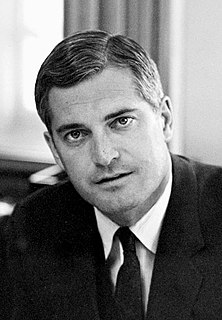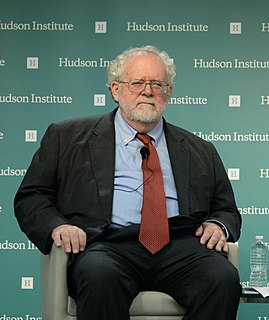A Quote by Andrew Bacevich
The folly and hubris of the policy makers who heedlessly thrust the nation into an ill-defined and open-ended 'global war on terror' without the foggiest notion of what victory would look like, how it would be won, and what it might cost approached standards hitherto achieved only by slightly mad German warlords.
Related Quotes
You ask, What is our policy? I will say; 'It is to wage war, by sea, land and air, with all our might and with all the strength that God can give us: to wage war against a monstrous tyranny, never surpassed in the dark lamentable catalogue of human crime. That is our policy.' You ask, What is our aim? I can answer with one word: Victory-victory at all costs, victory in spite of all terror, victory however long and hard the road may be; for without victory there is no survival.
The most common objection to changes in public policy which would increase a user's control of housing at the expense of centralized institutions is that standards would be lowered as a result. The standards the objectors have in mind, however, are not something that cam be achieved with available resources, but, rather, represent the objector's own notion of what housing ought to be.
We need an honest bottom line. Today that bottom line is vastly subsidized. If anyone of us were paying the full cost of oil our bottom lines would be very different. If you internalize the cost of oil, look at the cost of the war in the Middle East or the cost of global warming for future generations, if you internalize those external costs and what you pay, that bottom line would look very different, what ever business you are in.
If the lives of men were relieved of all need, hardship and adversity; if everything they took in hand were successful, they would be so swollen with arrogance that, though they might not burst, they would present the spectacle of unbridled folly-nay, they would go mad. And I may say, further, that a certain amount of care or pain or trouble is necessary for every man at all times. A ship without ballast is unstable and will not go straight.
I can't say with certainty that slavery would have ended more quickly and more completely if the South had been allowed to leave and escaped former slaves had been allowed to remain free, and the North and the rest of the world had been a positive influence on the South. However, it's certainly a possibility that it would have ended sooner if the southern slave owners had agreed to a system of compensated emancipation and freed the slaves without a war and without secession, as most nations that ended slavery did. That absolutely would have been preferable to the Civil War as it happened.
It must be a peace without victory... Victory would mean peace forced upon the loser, a victor's terms imposed upon the vanquished. It would be accepted in humiliation, under duress, at an intolerable sacrifice, and would leave a sting, a resentment, a bitter memory upon which terms of peace would rest, not permanently, but only as upon quicksand. Only a peace between equals can last.
People think that alien spaceships would be solid and made of metal and have lights all over them and move slowly through the sky because that is how we would build a spaceship if we were able to build one that big. But aliens, if they exist, would probably be very different from us. They might look like big slugs, or be flat like reflections. Or they might be bigger than planets. Or they might not have bodies at all. They might just be information, like in a computer. And their spaceships might look like clouds, or be made up of unconnected objects like dust or leaves.
Carter's hopes died when the Soviet Union invaded Afghanistan and he ended up having to reverse policy and launch the military buildup that Reagan continued. Mr. Obama would be forced back into a war on terror if terrorist groups pull off enough damaging or frightening attacks to force this issue to the fore.
How many people would like to be good, if only they might be good without taking trouble about it! They do not like goodness well enough to hunger and thirst after it, or to sell all that they have that they may buy it; they will not batter at the gate of the kingdom of heaven; but they look with pleasure on this or that aerial castle of righteousness, and think it would be rather nice to live in it.
Maybe he hadn't thought the war through. It had seemed like simple fun when he had first pictured it, with a glorious beginning, a difficult but valor-filled middle, and a victorious end. He hadn't accounted for the fact that there might not be much of a resolution to the battle, and he hadn't imagined what it would feel like when the war just sort of ended, without anyone admitting defeat and congratulating him for his bravery.
Every generation has its war. I have just been reminded of mine. It ended in 1989, 43 years after it began, the longest war Britain fought and certainly the most expensive. Its climax was total victory. Yet there was no parade, no medals, no colours hung in cathedrals. The Cold War saw no battles and cost almost no blood. Where there is no blood there is no glory and hence no history. Asked What did you do in the war, Daddy?, I could say only that I paid my taxes and left it at that.
After 9/11, it became clear that we [the United States] had to do several things to have a successful strategy to win the global war on terror, specifically that we had to go after the terrorists wherever we might find them, that we also had to go after state sponsors of terror, those who might provide sanctuary or safe harbor for terror.





































